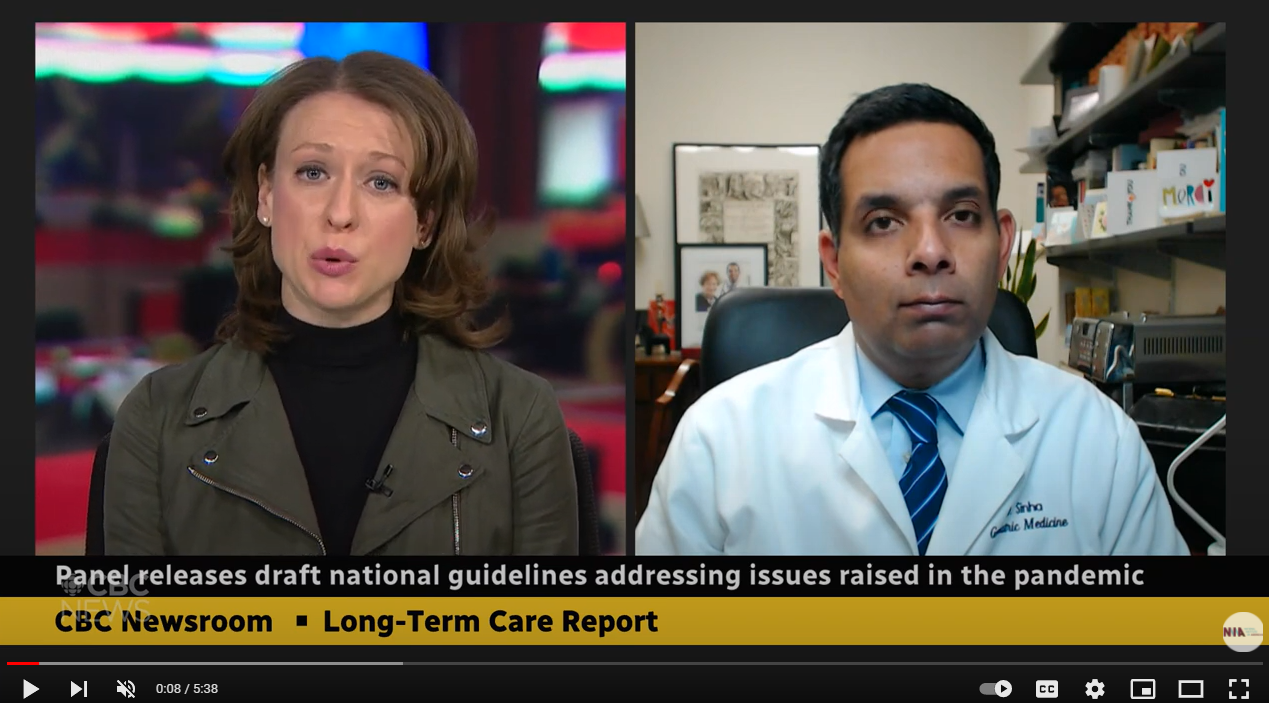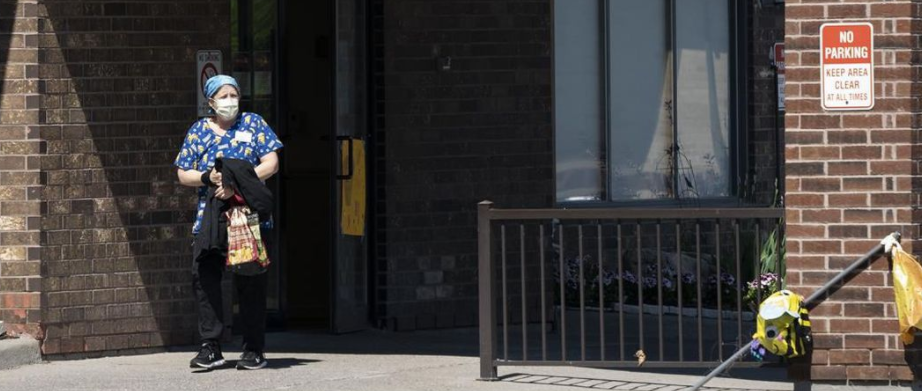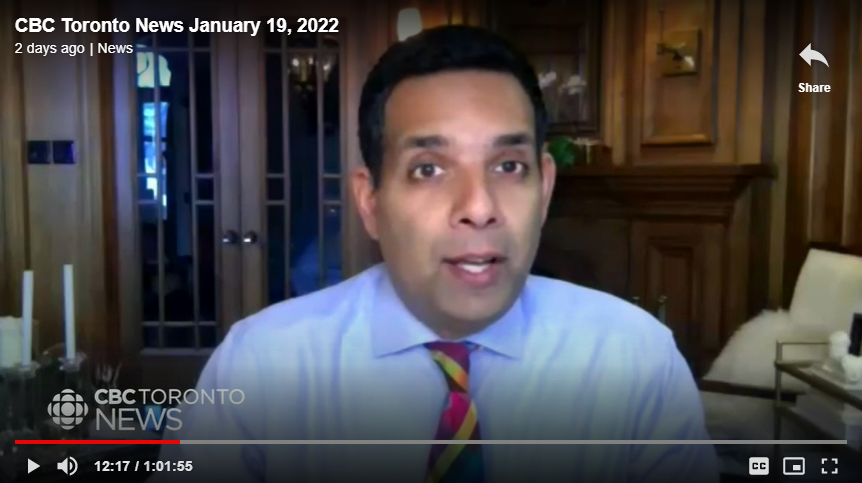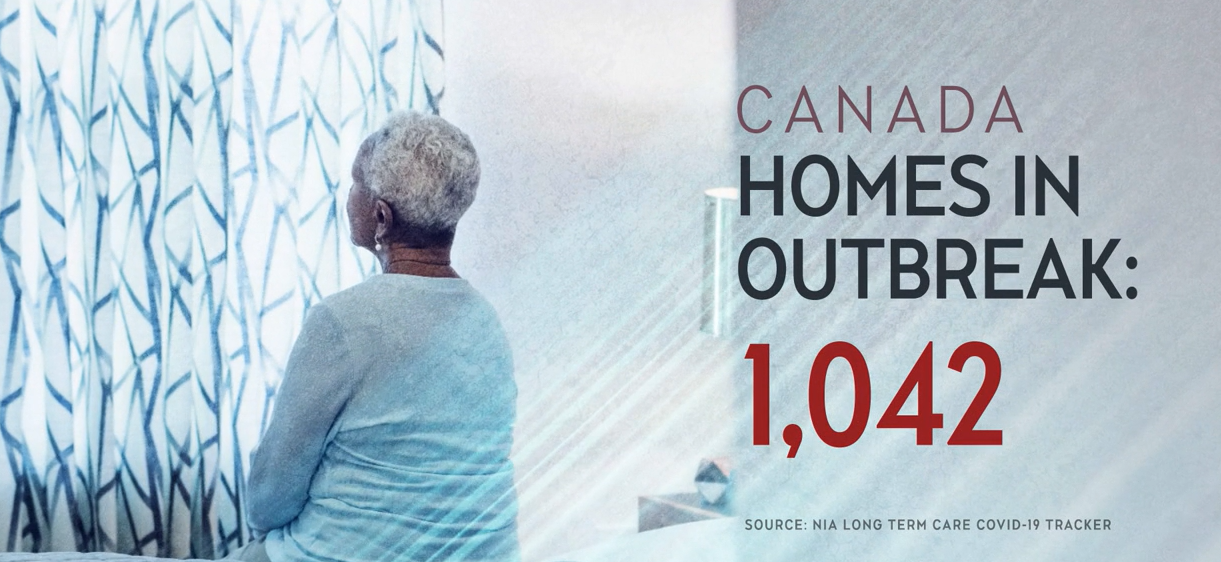"We just made history by having more than 16,000 people die in our long-term care and retirement homes because of this pandemic. Wave after wave we continue to see record numbers of homes entering outbreak. We've got some fundamental, long-standing issues that we really need to address. This became an opportunity for us to take a look at what the existing standards are that led us into this mess in the first place and what can we do to strengthen them so that they speak to what resident-centred care really looks like," says Dr. Samir Sinha, NIA Director of Health Policy Research (starts at minute 24).
Read MoreSpecial to Financial Post by Bonnie-Jeanne MacDonald, NIA Director of Financial Security Research: By 2050 the costs of long-term care will take up more than a quarter of all income tax revenues
Read MoreDr. Samir Sinha, HSO’s long-term care services technical committee chair, said he is hopeful this will provide a “clear blueprint” to enable the federal government, provinces and territories to move long-term care “to where all Canadians are demanding it to go.”
Read More"I'm hoping. My God, I'm hoping that this will be a clear blueprint that really can enable provincial and territorial and federal action to move long-term care to where all Canadians are demanding it to go," said Dr. Samir Sinha, NIA Director of Health Policy Research.
Read More"Thousands of Canadians said, 'We want long-term care to feel like home to be home-like.' So we asked, 'What does that mean to you?' The standard can become the basis for new legislation for new regulations," says Dr. Samir Sinha, NIA Director of Health Policy Research.
Read More“If you want to enable the standard, you have to fix issues of funding. You must have better staffing. We must have better levels of accountability,” says Dr. Samir Sinha, NIA Director of Health Policy Research.
Read More"The previous standards didn't have much to say about the [long-term care] workforce. But we know that our conditions of work are the conditions of care. And unless we actually make sure we have a well supported, resilient and competent workforce, then you can't even provide good care at all," says Dr. Samir Sinha, NIA Director of Health Policy Research.
Read More“I think a lot of the standard has been written in that line of thinking, about what have we experienced and what further things we need to do in the standard to have avoided a lot of what we had been witnessing over and over again during this pandemic,” Dr. Samir Sinha said in a media briefing ahead of the document’s release.
Read More“These standards can be so much more than just the basis of accreditation programs,” said Dr. Samir Sinha, NIA Director of Health Policy Research.
Read More"I'm hoping that this will be a clear blueprint that really can enable provincial, territorial and federal action to move long-term care to where all Canadians are demanding it to go," said Dr. Samir Sinha, NIA Director of Health Policy Research.
Read More"Once you have that framework in mind, it is actually pretty easy to start framing everything else in a way that respects the rights of residents," says NIA Director of Health Policy Research, Dr. Samir Sinha.
Read MoreYou should still get a booster even if you’ve just had COVID, according to Dr. Samir Sinha, NIA Director of Health Policy Research. Dr. Sinha recommends getting a booster – or even a fourth shot if eligible.
“We don’t know how strong your level of natural immunity will be in response to a recent infection with COVID. And we don’t necessarily know how long it will last,” Sinha tells Global News.
How can you bring up peri- or menopausal issues with a manager who you don’t think will be supportive?
"When deciding how to approach this with your employer, it’s important to first consider what kind of workplace you are in. Some organizations have fostered cultures where you can have all kinds of open conversations. Other organizations don’t have that type of open culture, so when you encounter an issue – whether it’s menopause or another wellness-related health issue – those conversations can become really difficult," said Lisa Taylor, NIA Associate Fellow and Founder and President at Challenge Factory.
NIA Director of Health Policy Research, Dr. Samir Sinha, says there was already a shortage of staff in long-term care homes across the province. "Right now, two years into the pandemic, we just don't have the resilience in our system in terms of the adequate amount of staff and supports that we can actually provide in a crisis."
Read More"Sometimes children of elderly parents bully them into giving up driving," says Dr. Samir Sinha, NIA Director of Health Policy Research. Rather than having a family member shut down driving, he recommends a thorough conversation with the person who is driving to determine their driving fitness and views around driving.
Read More“This is the highest number we have ever had, and we haven’t even reached the peak,” Dr. Samir Sinha, NIA Director of Health Policy Research, said in an interview. “It’s the ultimate letdown to have one of the government’s smartest ministers put in charge of tackling this file resign on a day when Ontario has never seen so many long-term care homes in a COVID-19 outbreak.”
Read MoreIf Toronto succeeds with its plans to transform all city-operated nursing homes, it will become a North American municipal leader in long-term care, said Dr. Samir Sinha, co-chair of Toronto’s seniors’ accountability group and NIA Director of Health Policy Research.
Sinha said the city has a seniors strategy that elevated community support for older adults and focused on long-term care. Still, he said, the possibility of extra staff in nursing homes does not immediately mean Toronto will succeed with high-quality emotion-centred care.
"What we've seen across the country — and in Alberta as well — is just an explosive growth in the number of continuing care environments that are actually experiencing outbreaks just because Omicron is that contagious," said Dr. Samir Sinha, NIA Director of Health Policy Research.
"And as it spreads widely in the community, it's only a matter of time before it gets into the home via people coming into the home, like workers or potentially visitors as well."
Dr. Samir Sinha, NIA Director of Health Policy Research, told CTV News that it seems long-term care homes are following the right steps from a public health standpoint in having close contacts isolate.
“We don't know even which of the double or triple vaccinated people might get seriously ill and might end up dying,” he said.
"The protocols that have been approved in this home will and have certainly greatly improved the quality of life of the home’s residents," said Dr. Samir Sinha, NIA Director of Health Policy Research.
But Dr. Sinha cautions that with increased activity, there may be a higher risk of COVID-19 transmission among residents and staff, since Omicron can still infect those who are fully vaccinated.




















